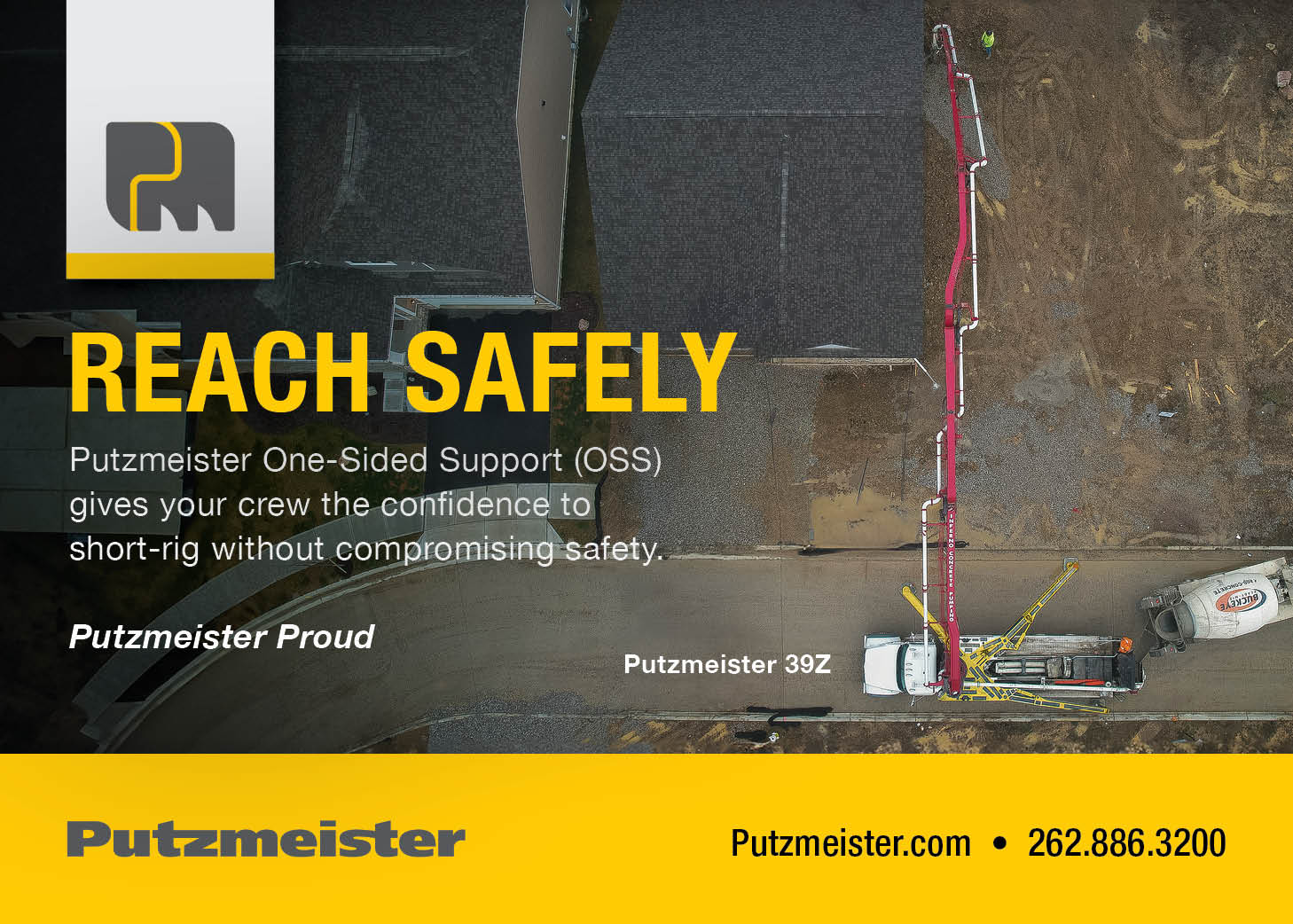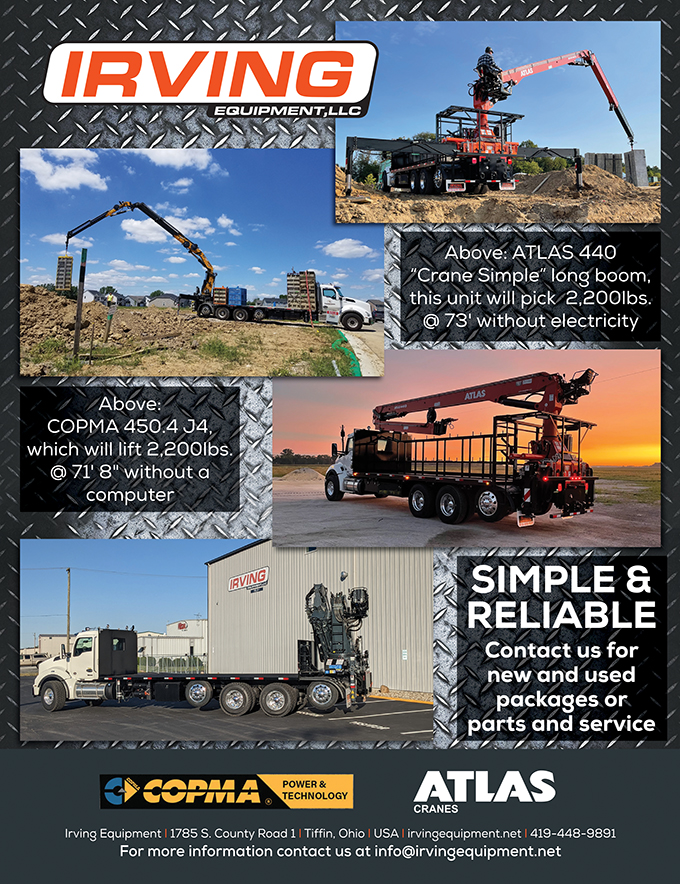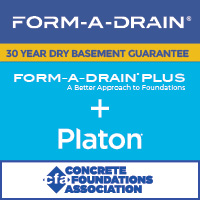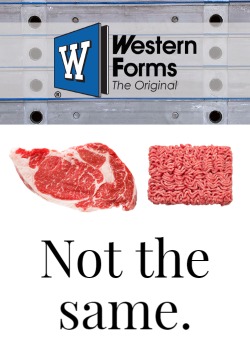Oppose Increases to Motor Carriers’ Federal Insurance Requirements
Support truckers, farmers and manufacturers by rejecting unnecessary increases to their operating costs.

The Concrete Foundations Association is one of more than 60 national and regional organizations actively working to prevent the legislation discussed in this article. We believe that such a drastic increase in the minimum requirements for insurance is an overreach of the Federal government and founded solely on the interests of lobbyists trying to increase awards to the legal industry. For more information on what CFA is doing on your behalf, contact Executive Director, James Baty.
Federal law requires motor carriers to carry at least $750,000 in liability coverage ($5 million for those hauling hazardous materials), and this minimum has been shown to cover costs in over 99% of crashes involving commercial motor vehicles (CMVs). Not only that, but the vast majority of carriers are currently insured at $1 million or more. Additional coverage is obviously not required, but the insurance industry tends to naturally adjust levels based on market conditions. Any increase has been proven unnecessary, will do nothing to improve highway safety and would undoubtedly harm many small trucking businesses, farmers and manufacturers through skyrocketing premium costs. Despite this reality, trial lawyers are pushing to increase federal insurance requirements anywhere from $2,000,000 to nearly $5,000,000 – often resorting to misleading claims to support their self-serving efforts.
UNNECESSARY: Today’s federal insurance requirements cover damages in more than 99% of crashes involving CMVs.
- A Congressionally-mandated report conducted by the John A. Volpe Transportation Systems Center (Volpe) concluded, “The vast majority of CMV-caused crashes have relatively small cost consequences, and the costs are easily covered with the limits of mandatory liability insurance.” [emphasis added]
- Volpe found the current $750,000 minimum covers damages in 99.4% of crashes involving a CMV. That’s right – 99.4%!
- In fact, Volpe determined the average crash costs $18,000 in damages.
- Volpe also stated that “A final portion of high- cost crashes would fall outside compensation instruments even if the minimum liability were raised.” In other words, no matter how high coverage limits are raised, there will always be exceptional cases that are so expensive no level of insurance would cover them.
- According to David Golden, senior director of commercial lines for the Property Casualty Insurers Association of America, “The free market does a good job of determining the appropriate level of insurance and the appropriate rates, and does this regardless of the financial responsibility requirements that the government sets.”
NO IMPROVEMENT TO SAFETY: There is no research that demonstrates increasing federal insurance levels would improve road safety.
None.
- Increasing insurance minimums could actually decrease road safety by forcing small motor carriers, who collectively have the best safety records, out of business. For carriers that are able to hang on, dramatically increasing their costs means they will have fewer resources to cover important safety measures, such as equipment maintenance and upgrades.
HARMFUL TO SMALL BUSINESSES: Any increase to federal insurance requirements would hurt a wide variety of businesses, but it would be catastrophic for small businesses, many of which are still struggling to survive the economic downturn caused by COVID-19.
- Raising federal insurance requirements would lead to a dramatic increase in premiums. There is no linear relationship between insurance coverage and premium costs, making it difficult to produce an exact estimate, but even an increase to $2,000,000 could easily double premiums. Insurance premiums are already rising sharply without Congressional mandates,1 and an increase to minimum liability requirements would only accelerate this harmful trend.
- Insurance capacity is finite and insurance providers likely lack the capacity to withstand a several billion dollar increase in their exposure. This lack of capacity would cause many providers to leave the CMV market entirely, further increasing costs on motor carriers.
- Rejecting calls for increases in insurance coverage will help protect American jobs and businesses from an unnecessary and excessive policy designed to further line the pockets of trial lawyers at the expense of truckers, farmers and manufacturers.
DON’T BE MISLEAD: Advocates for increasing federal insurance requirements have made some very misleading assertions recently, such as claiming insurance levels need to be updated to track inflation in medical costs. This is not supported by research. The real goal of trial lawyers is to increase their payouts when suing American businesses.
- Remember, Volpe’s report found nearly all crash costs are covered by existing minimums. The mere fact that medical costs have increased over the years does not mean that insurance minimums need to be increased to keep pace. If anything, this is an indication that action should be taken to bring medical costs under control.
- Furthermore, if higher insurance costs could actually weed out unsafe carriers, then this should already be taking place as motor carriers’ premiums have steadily increased for many years. There is no research to support these claims and current conditions indicate such assertions aren’t based in reality.
- Motor carriers can’t simply pass increased costs onto shippers, as proponents without experience in trucking have naively stated. History has shown that small-business truckers either bear the costs of new regulations or go out of business.







